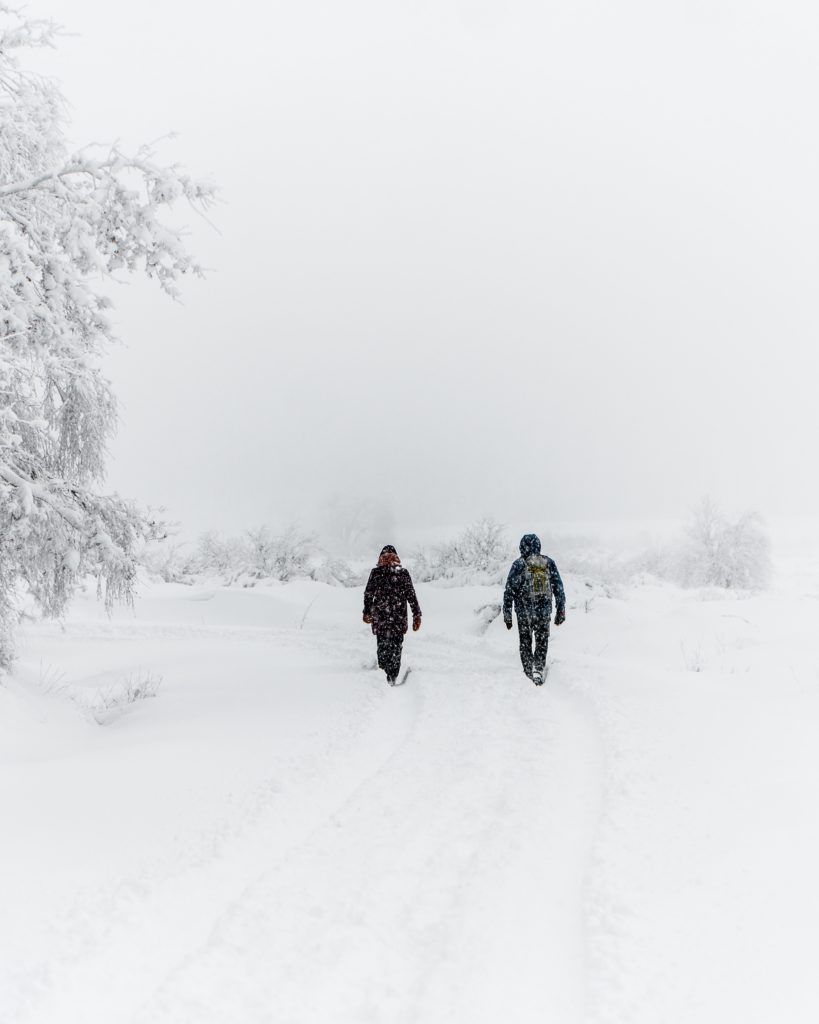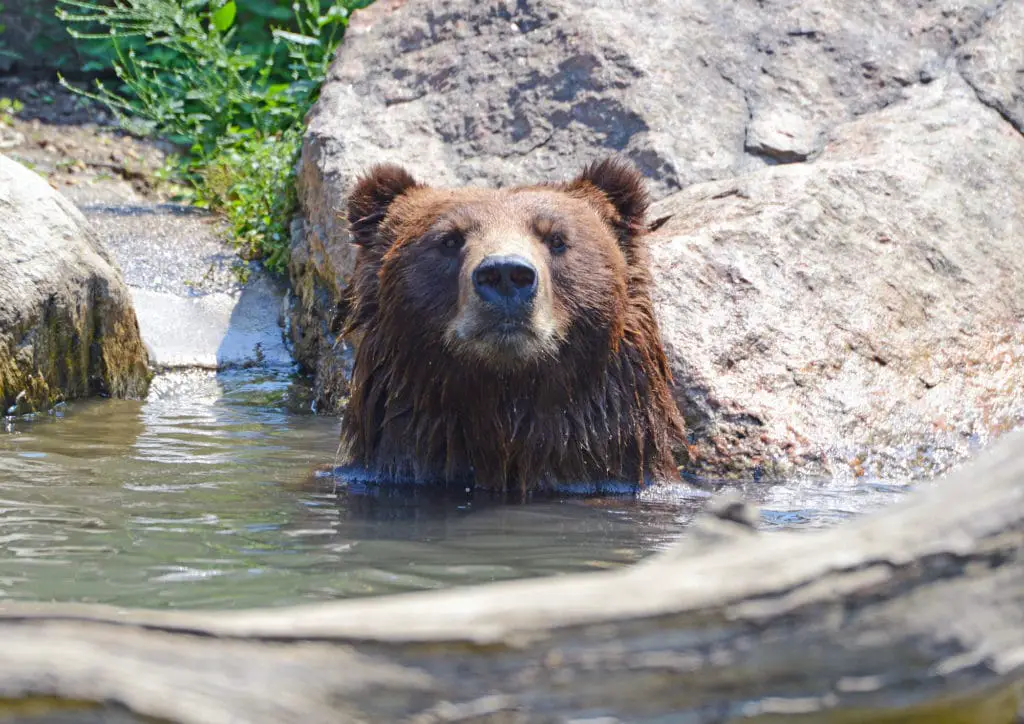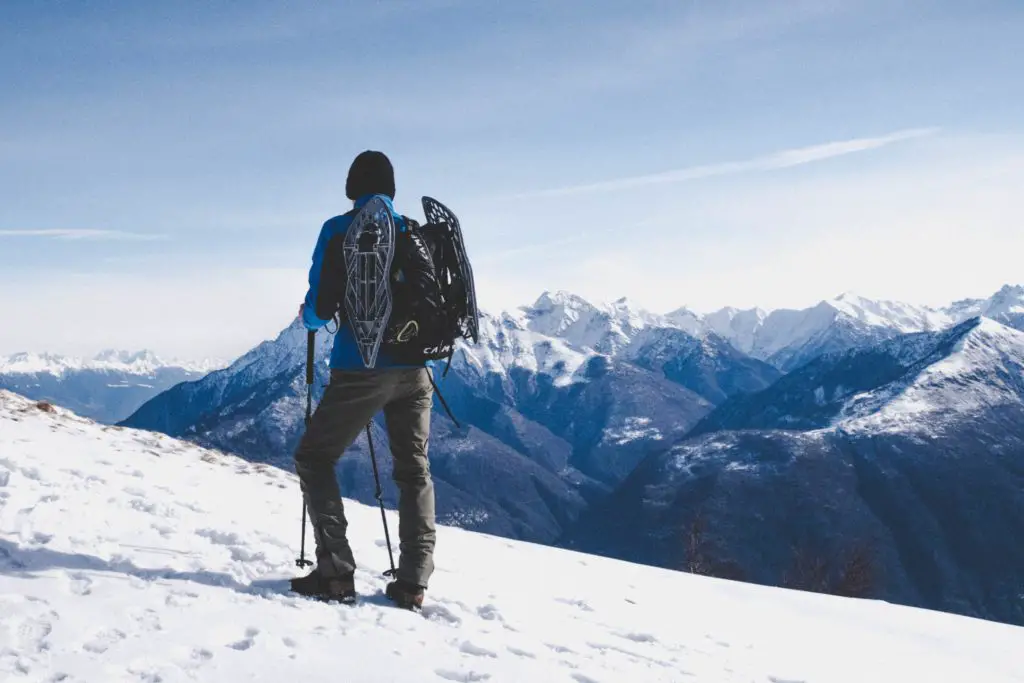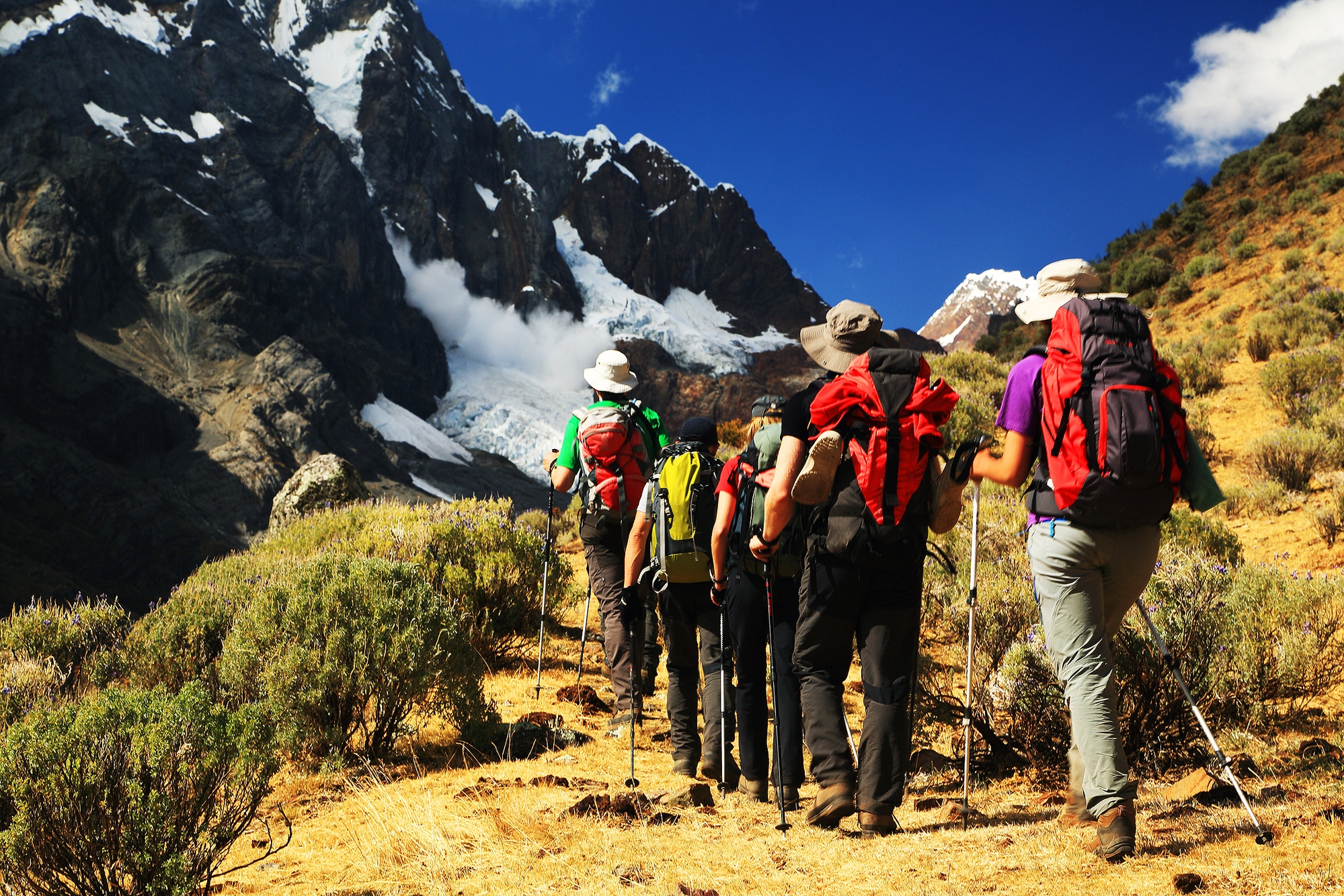Hiking can be dangerous if you are inexperienced or unprepared. You need to prepare for the weather, animals, supply shortages, and more if you want to stay safe when you hike. This article will discuss the dangers of hiking, give you tips on how to stay safe when hiking, and answer some popular questions regarding hiking safety.
Table of Contents
Potential dangers of Hiking
Hiking is safe if you prepare ahead of time and know what potential dangers of hiking exist. Many dangerous events could occur during a hike, but the good news is that you can prepare for all of them.
Bad Weather

First, bad weather could occur during your hike, so make sure you check the weather before you start and use multiple weather resources in case one is wrong.
For sunny weather, you can risk damaging your eyes and skin without proper skin protection. In the rain or cold, you need to stay dry and warm or risk getting sick.
If you are hiking long-distance, you may need to check the weather in multiple places. Or, if you are hiking over numerous days, make sure you know how the weather will change each day, and try to check the weather during your trip if possible.
Food and Supply Shortages
Next, you could run out of food, water, or other supplies in the middle of a hike and not have anywhere to restock. Make sure you bring more than enough water because dehydration can have a detrimental effect on your health, and the same with food.
If you need an easy solution for food on your hike, check out Mountain House Meals.
Wildlife and Pests

Moreover, there are animals and bugs that you may encounter when hiking. Use bug spray when you hike, keep food sealed away from bears and other rodents, and know what to do if you come in contact with a large animal.
Unexpected events can always occur like injury, a sudden change in weather, or other emergencies, so it is important to be prepared.
10 Ways to Stay Safe While Hiking
- Bring enough food and water, and make sure any food is well packed and hidden, so it does not attract animals.
- Check the weather in advance, and bring warm clothes and warm sleeping bags if you stay overnight.
- Protect your skin with sunscreen, bug spray, and know how to protect yourself from ticks.
- Do not hike off the designated trail, especially if you are hiking alone or at night.
- Learn how to protect yourself if you encounter animals like bears.
- Pack a first aid kit with items like bandaids, antibiotics, sanitizing wipes, tweezers, and ibuprofen.
- Do not push your body to hike more than necessary, and know how much your backpack should weigh.
- If you are hiking in a deserted area, hiking for a long distance, or hiking overnight, let your friends and family know where you are planning to go, and do not change your plans midway through the hike.
- Research your hike before you go if there are trail closures, bad weather conditions, or other trail alerts you should be aware of.
- Be extra cautious in rainy weather, especially near water where flooding or fast currents could occur.
Frequently Asked Questions
Is Hiking Alone Dangerous?
Hiking alone is not necessarily dangerous, but it can be for beginners and other hikers who do not know the proper precautions to take. If you have the option, you should always have at least one other person to hike with.
If you have to go hiking alone, go on a well-traveled trail to see other hikers, and do not go off a hiking trail. If possible, hike a route that you have hiked before, so you know what to expect and can plan.
Once you know where you will be hiking, let your friends and family know your exact plan, and do not change your plan during the hike. Even if you are familiar with where you are going, you may encounter some of the dangers mentioned above, like animals, bad weather, and dehydration.
While hiking alone is not dangerous, there are a lot of dangers that you can encounter, and there are a lot of precautions that you need to take. You should always hike with someone else if you can.
Is Hiking Safe for Early Pregnancy?
Yes, hiking is safe to do during the early months of pregnancy, but you need to take precautions to stay safe. First, you should not do any intense hikes or hikes in drastic weather. Find a flat, easy trail, and go when the weather is mild and not too hot or cold.
You will need to bring plenty of water and food, more than you would need when hiking when not pregnant. Also, take more breaks than normal, even if you are not feeling tired. You will not be able to hike at the same pace or intensity as you did before getting pregnant, so it is essential to be more cautious than not.
Finally, you should not hike alone when you are pregnant. Always have at least one other person with you, and try to hike on more populated trails. As you progress into your pregnancy, you will likely need to stop hiking or do very little hiking at your doctor’s discretion.
Is it Safe to Hike Barefoot?
Yes, it is safe to hike barefoot, and there are many benefits to hiking barefoot. When you hike barefoot, you have better posture, it is better for your feet, and you can hike in wet conditions without worrying about wet shoes and socks.
However, you must remember that you are barefoot, so you need to keep an eye on the ground to make sure you are not stepping on rocks, glass, or anything else that may injure your feet and impact your hiking abilities. If you are hiking on wet rocks or in the rain, you will not have the same grip as you do with hiking shoes, so try to avoid these conditions when hiking barefoot.
Is it Dangerous to Hike in Spring?
You need to prepare for some conditions when you hike in the spring, but it is not dangerous. First, remember that springtime has more rain than other seasons, and snow and ice melt, adding to the wet conditions.
Next, hiking is not as popular in the winter and early spring. Trails may be altered from the winter conditions, and there is not as much daylight in the spring, so you should not attempt longer hikes.
Finally, temperatures may be high during the day, but they can drop in the evening and at night. If you are hiking all day, bring warmer clothes to wear later in the day when the sun goes down. If you are hiking overnight, nighttime will be much cooler than the day, so bring warm sleeping gear.
Is Hiking in the Rain Dangerous?
You will need to take some steps to stay safe when hiking in the rain. First, pack rain gear, including a rain jacket, waterproof shoes, and extra socks. If you do not have a waterproof hiking bag, keep your valuables and extra socks dry by wrapping them in plastic garbage bags or sandwich bags.
When you are on a trail, beware of slippery surfaces that can be dangerous in the rain. Furthermore, if you are hiking near a river, be on the lookout for flooding and fast currents. Stay away from water, especially any that is fast flowing. Your trail could flood as well, especially on an uneven terrain where rain can collect in holes and divots.
Finally, rainy weather can make you colder on your hike. Make sure your rain gear is warm, so you do not risk getting hypothermia. If possible, wait until the weather is better to do your hike.
Gear to Help You Stay Safe

There is a lot of gear that you can use while hiking to keep yourself safe. Here are some suggestions of gear you may want to bring hiking to keep you safe.
First, invest in some good hiking poles. These will help you safely hike on uneven terrain and can help you save energy when you hike in hot weather. If you are flying somewhere to hike, know that the TSA will allow you to bring hiking poles in your checked bags, but not in a carry-on.
Next, when you hike in cold weather, you should always dress warmer rather than not be warm enough. What you bring depends on the length and climate of your hike, but a good starting place is to learn what to wear hiking in 40-degree weather.
Finally, extra socks are important to keep your feet dry, warm, and safe from rough terrain and injury. If you want to have the best socks, make sure to buy high-quality, and avoid cotton socks for hiking.
Final Thoughts
Hiking is not dangerous, but there are many precautions you should take before hiking. This is especially important if you are hiking alone, in bad weather, or an unpopulated area. Having the right gear like socks, warm clothes, and plenty of food and water is crucial to stay safe when hiking. Before you hike, know the dangers of hiking, and take precautions to avoid them so you can have a fun, safe hiking experience.

